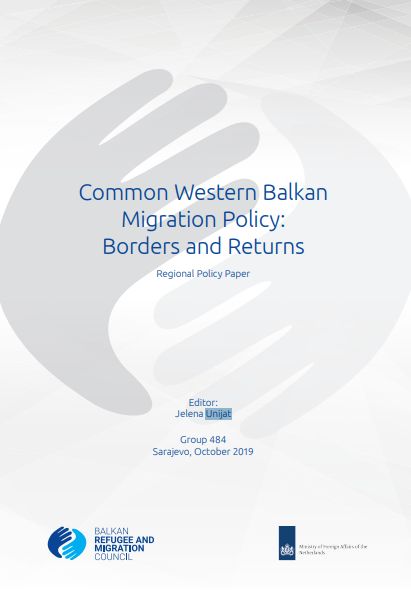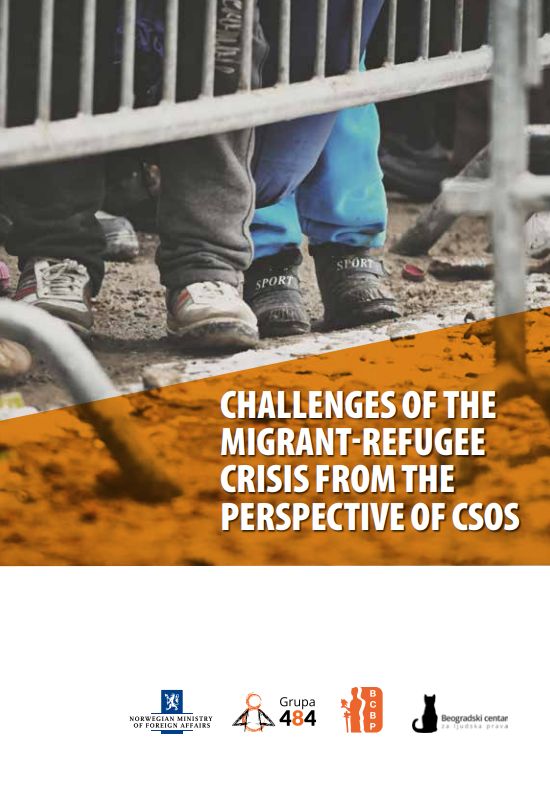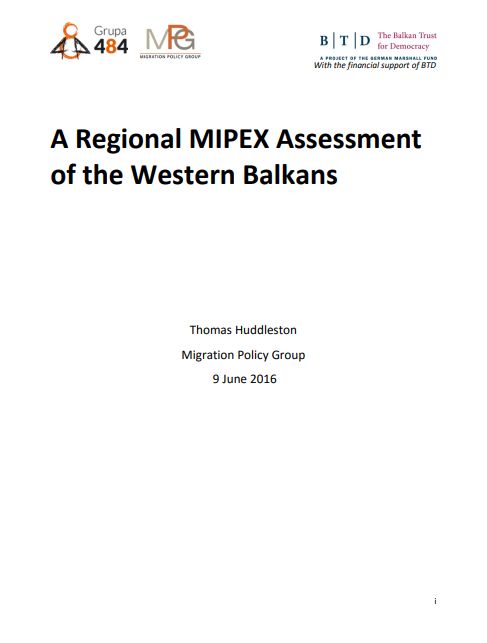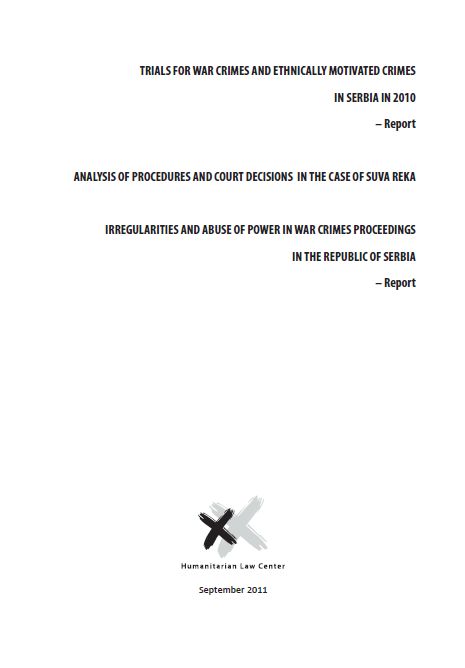Common Western Balkan Migration Policy: Borders and Returns - Regional Policy Paper
Author(s): Jelena Unijat / Language(s): English
Keywords: migration; borders; asylum; returns; frontex
This is the first BRMC Regional Policy Paper. Its main purpose is to present to the general and professional public, as well as to stakeholders, the migration situation in the Western Balkans region, particularly through the overview of the relevant regulations mainly focused on the various modalities for the return of migrants. Unlike most regional papers, this one is primarily dealing with a comparative analysis, and thus it is not presented by countries but by topics. The practice is analysed through secondary sources. Although the paper is regional in nature, the data were collected at the national level, since it was assumed that the local civil society organisations, Balkan Refugee and Migration Council (BRMC) members, had the most comprehensive insight into all migration-related issues in their countries. All BRMC members provided Group 484, the project coordinator, with the data on the relevant legislation, strategic framework and practice, as well as certain statistics for 2018. The laws governing the areas of state border control, treatment of foreigners and international protection are analysed only in the parts related to treatments at the borders, while the strategic framework analysis is presented only in the part related to regional cooperation in the border management process and the related issues. The institutional framework in the migration management system is also briefly presented.Bearing in mind that the field of migration in the Western Balkans region has so far been presented mainly by individual countries through various publications, the aim of this Regional Policy Paper is to provide a comparative overview of the situation in the region, primarily through the analysis of laws and strategies, but to a certain extent also present the treatment practices. In order to gain a deeper and more comprehensive insight into the circumstances in individual countries, the data used for the preparation of this paper was collected at the national level. The introduction itself provides an overview of the migratory movements in 2018 in the Western Balkan countries and shows the European Union’s attitude towards this region in the context of the EU policy of externalisation of the control of its borders, with a brief overview of relevant EU documents in this field. This is followed by a brief outline of the international legal framework, as well as a list of the most important international documents on the treatment of refugees and migrants brought under the auspices of the United Nations and the Council of Europe ratified by the Western Balkan countries. Subsequently, a comparative analysis of the existing national border control laws, laws on foreigners and asylum-related laws is presented, as well as an analysis of the strategic framework, with the special emphasis on regional cooperation in the fields of migration management, integrated border management, as well as the fight against trafficking in human beings, finally outlining the institutional framework. In the central section of the paper, a separate chapter is devoted to the role and relations of Frontex in the Western Balkans region, with an analysis of working agreements, and of the Status Agreement with Albania. This is followed by an overview of the regulations and practice of the Western Balkan countries in the areas of access to the territory, access to the asylum procedures, and returns. Throughout the chapter on access to the territory, legal and illegal entry into the country is dealt with, with the cases when entry into the country is allowed even when persons do not meet the general conditions for entry, as well as misdemeanour and criminal sanctions for illegal entries and exemptions from punishment. The section on the access to the asylum procedure also describes the accelerated procedure at border crossings and airport transit zones. The section dealing with returns addresses the issues of expulsions, entry bans, immigration detention, readmission, assisted voluntary return, as well as informal returns. At the end of the paper, recommendations are made to stakeholders for further improvement of the situation in this area.
More...




















